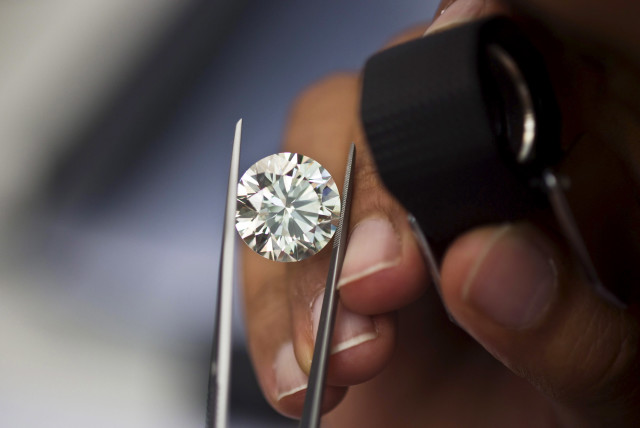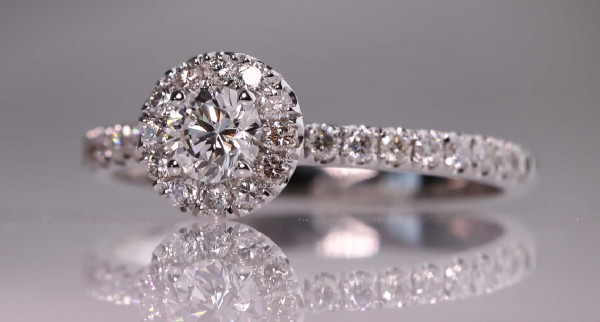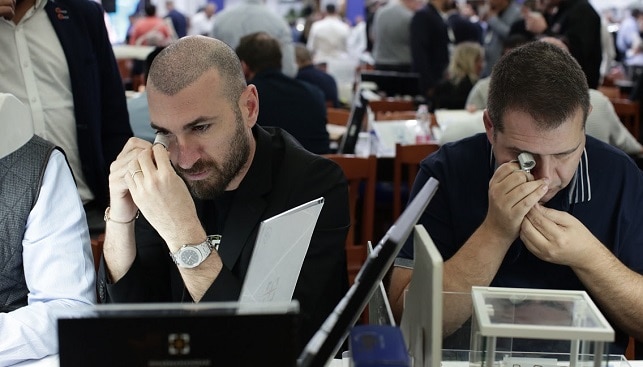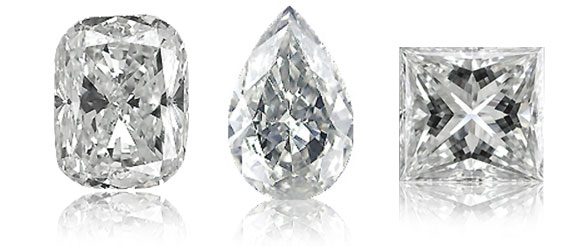There are many raw materials that are exported from Israel, including bromine, natural gas, fish, citrus fruits, and various chemicals, but the largest export industry in the country is polished diamonds. While some of these diamonds end up in Israeli jewelry, most of them are exported to other countries on a wholesale basis. The cut and polished diamonds that jewelers purchase for their custom and signature jewelry pieces often originate in Israel.
The Beginnings of an Industry
The first diamond polishing factory was established in 1937 in Petah Tikva, eleven years before the creation of the State of Israel. A year later, the 15% import tax on rough diamonds was removed, which paved the way for a booming industry because it became cheaper to import rough stones into Israel for cutting and polishing than for diamond mining companies to do it themselves. Just five years later, in 1944, there were 33 diamond cutting and polishing factories in Israel, employing more than 3,300 workers.

The finished products were exported mostly to the United States, India, and Canada, and diamonds became the largest export in Israel for its first 15 years of existence. The Israel Diamond Exchange, which has been around since the very first factory in 1937, has grown to be the largest diamond center in the world, and supplies many of the diamonds in jewelry sold all over the world.
Israeli Diamonds Today
Currently, cut and polished diamonds makeup approximately 25% of Israel’s total exports and represent about 12% of the world’s diamond production. The cutting and polishing factories in the country are considered some of the most sophisticated in the world and are equipped with advanced technical equipment, much of which was developed locally. Israel is a technology center that has invented automatic polishing machines, lasers for cutting diamonds, CAD systems for designing new cuts, and brutting machines.

Israel is considered to be one of three major diamond centers in the world, alongside India and Belgium. The United States is Israel’s largest export market, accounting for about 36% of the country’s diamonds. About half of the diamonds purchased by jewelers and consumers in the United States have been cut and polished in Israel.
Asian markets, including Hong Kong and China, are fast-growing regions for the diamond industry and Israel’s exports to these countries have been growing over the last decade. Israel’s diamond trade is strong and robust, and shows no signs of slowing down, especially as diamond jewelry is still a highly desirable commodity.

The Israeli Diamond Guarantee
All diamonds that come from Israel are guaranteed to be natural, and in 2010, the country became the chair of the Kimberley Process Certification Scheme. This process is committed to ensuring that no blood diamonds enter the marketplace. Blood diamonds are those that are mined in a war zone and the profits are used to fund insurgents. The diamond industry in Israel has been a leader in championing human rights and seeking to eradicate the market for blood diamonds.

Conclusion
People are often surprised to learn that diamonds are a big business in Israel, and that the industry has been growing for more than 80 years. The next time you’re considering buying a diamond ring or pendant, ask where the diamonds came from. They just might have passed through an Israeli diamond cutting and polishing factory on their way to you.

